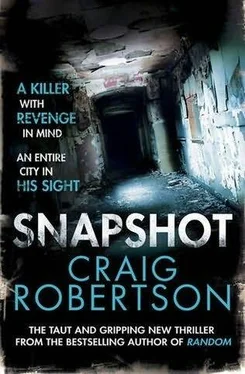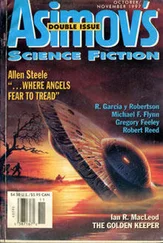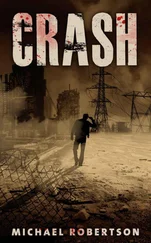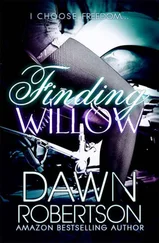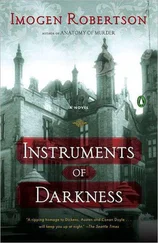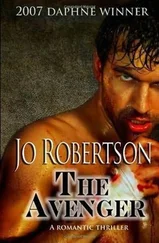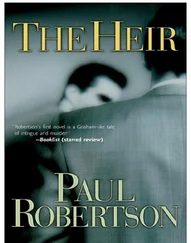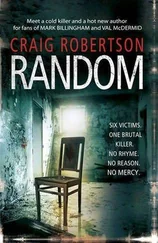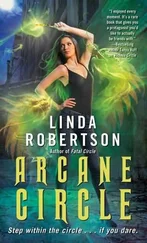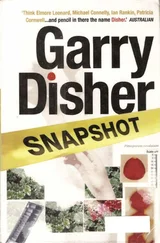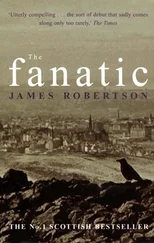Craig Robertson - Snapshot
Здесь есть возможность читать онлайн «Craig Robertson - Snapshot» весь текст электронной книги совершенно бесплатно (целиком полную версию без сокращений). В некоторых случаях можно слушать аудио, скачать через торрент в формате fb2 и присутствует краткое содержание. Жанр: Триллер, на английском языке. Описание произведения, (предисловие) а так же отзывы посетителей доступны на портале библиотеки ЛибКат.
- Название:Snapshot
- Автор:
- Жанр:
- Год:неизвестен
- ISBN:нет данных
- Рейтинг книги:5 / 5. Голосов: 1
-
Избранное:Добавить в избранное
- Отзывы:
-
Ваша оценка:
- 100
- 1
- 2
- 3
- 4
- 5
Snapshot: краткое содержание, описание и аннотация
Предлагаем к чтению аннотацию, описание, краткое содержание или предисловие (зависит от того, что написал сам автор книги «Snapshot»). Если вы не нашли необходимую информацию о книге — напишите в комментариях, мы постараемся отыскать её.
Snapshot — читать онлайн бесплатно полную книгу (весь текст) целиком
Ниже представлен текст книги, разбитый по страницам. Система сохранения места последней прочитанной страницы, позволяет с удобством читать онлайн бесплатно книгу «Snapshot», без необходимости каждый раз заново искать на чём Вы остановились. Поставьте закладку, и сможете в любой момент перейти на страницу, на которой закончили чтение.
Интервал:
Закладка:
It was his own version of what was Metinides’s most famous shot, the photograph of the death of Adela Legaretta Rivas. The poor photocopy he’d had blown up of that hung next to his own poor imitation of it. Life imitating art imitating life.
Edgar Allan Poe once wrote that ‘there is nothing more beautiful than the death of a beautiful woman’ and Metinides had the proof of it.
Adela was an actress, walking across the Avenida Chapultepec when she was struck by a white Datsun that had crashed into another car. Metinides caught her right on the cusp in a twisted pose between a metal pole and a concrete slab, eyes open, almost expressionless but for a trace of mild surprise and slight disappointment, as if she had forgotten her umbrella and there was a chance of rain. Her shiny red nails were manicured, her blonde hair perfectly coiffured, her clothes elegant and her jewellery understated. She looks alive, maybe caught in the car’s headlights like a startled rabbit. All that gives it away is the unnatural angle of her right arm, the line of blood that runs from the bridge of her nose to her cheek, the trickle of crimson slipping from the corner of her lipsticked mouth and the faraway look in her eyes.
The photo shows a paramedic standing over her and about to gently, almost reverentially, place a blanket over her mangled body. Other people look on staring and you can’t help but gawp alongside them. It’s unsettling, intimate and terribly beautiful.
Winter felt there was beauty in his own work too and he looked at the photograph on the far right of the top row for evidence of it: an old man slumped at the foot of a tree near the People’s Palace on Glasgow Green. He’d taken it first thing on a bitterly cold morning in the depths of January, just an hour after the man they called the Bridgeton Elvis had been found frozen to death. The cops said they all knew the old bloke pretty well and it was obvious they were choked up at seeing him like that. One had said that he’d always greet them with a chorus of ‘Jailhouse Rock’, dressed in a great coat that usually had the bulge of a bottle in one pocket or another.
Elvis must have had a fair share of the bottle inside him because he’d bedded down for the night with nothing more than a balaclava, his coat and some cardboard and newspapers for warmth. Temperatures dropped suddenly during the night and the old man didn’t wake in the morning. Winter’s photograph showed ice on Elvis’s beard and his balaclava, the powder-blue of his cheeks and the frosting on his eyelashes that had brought the shutters down. Elvis had left the building for good but there was something noble about the way he sat there, sanguine about the indignities thrown at him by a spiteful world, quite literally frozen in the moment between life and death.
The beauty in some of Winter’s other photos was perhaps more difficult to see. An Asian boy named Salim Abbas had been kicked and punched to death by a gang of white kids in Pollockshields. They’d chased him through the streets, throwing whatever they could at him before finally falling on him like a pack of hyenas, weighing in with boot and fist. The little bastards probably thought they’d given him no more than a right good doing but Salim never got up again.
The photograph documented every bruise and cut, the bloodied mouth, broken teeth and smashed ribs, as well as the small pool of falu that had formed below his jet-black hair where his skull had crashed against the pavement. The boy had been curled into the foetal position for protection but by the time Winter had arrived he’d been laid out flat on the ground to let a paramedic fight in vain to revive him. All that was left for him to do was record the injuries and shake his head in wonder.
It was the same with the battered wife whose photograph was on the bottom row, her face lacerated with the cuts delivered by her drunken husband and a broken glass. Neighbours had heard her screams and called the police or else the attack in her plush home in Newton Mearns would have gone unreported. Middle-class Marie whose face was a road map of sliced skin and whose eyes shouted shame and resentment.
She lived a long way from the ned in the neighbouring photo who had a screwdriver embedded in his skull. For him, it was all part of the job. Winter had photographed the little scrote in A amp;E at the old Southern General and the picture was mostly notable for the scowl on his pockmarked face and the raised fist of triumph. You should have seen the other guy, he’d said.
Above the ned was a photograph of a junkie mother whose partner’s flat had been raided. Winter had been there to photograph the four bags of ecstasy found stashed under the sink. The woman – her name was Ashleigh, old way before her time and had already lost the looks she once had – screamed at them for taking away her boyfriend and asked how she was expected to cope and look after her wee girl. The daughter was about five or six, a pretty thing but in torn clothes and in need of a good wash.
Winter had asked if he could photograph the two of them but maybe she had sensed he was over-eager to take their picture because she immediately asked for a hundred pounds to do it. Addison had been there and laughed in the woman’s face but Winter had agreed. Of sorts.
He left and returned twenty-five minutes later with four full bags from the nearest supermarket, putting them down in front of the mother. It was a hundred pounds worth of shopping. Milk, bread, food to get them through the week, plenty of fresh fruit and vegetables, a few T-shirts and other clothes for the girl. The mother had sworn and ranted but eventually agreed when he said it was that or nothing. She hadn’t known he would have given her the stuff even if she’d said no.
Her anger at not getting what she’d hoped for had earned Winter the aggrieved glare that looked back at him from the photograph on his wall now. Ashleigh Morgan, junkie-chic skinny, eyes drained and wasted, her teeth soft and disappearing. Six-year-old Tiffany smiling happily. Hopefully both still alive and well but a couple of bags of decent food could only do so much.
Next to angry Ashleigh and her daughter was a black-and-white photograph of an empty street.
Arlington Street was in the west end, just off Woodlands Road. It ran long and narrow with sandblasted traditional tenements on one side of the road and red-and-cream modern versions on the other. You could see the Twenty’s Plenty sign at the beginning of the street and around eight parked cars on each side, but that was it. No people, no blood, no guts.
He didn’t think of it as his favourite photograph and it was far from the most eye-catching, but it was probably the most important. It was the progenitor, the catalyst, the reason for all of it.
The other Metinides copy he had was of his haunting photograph of a woman hanging from the tallest tree in Chapultec Park. It is otherworldly, quite surreal and you have to really look to see what is in front of you. The tree is obvious enough but it is only when you look again that the penny drops and you think, oh my fucking God. The realization eats away at you.
Metinides’s secret was the knowledge that people are so used to seeing death in the cinema or on television that, often, the real thing just doesn’t feel real. So he puts it right there in a photograph and messes with your mind, leaving you uncomfortable, unsettled, unsure. Winter had felt that way for a long time and knew that was why the Mexican’s photographs resonated so much with him.
It turned out that the woman had gone to Chapultec, asked which tree was the biggest, pulled a rope out of her purse and hanged herself. When they took the body down, they found a photograph of a young girl in her purse along with a note explaining that her husband had taken her daughter away six years before. That day was the girl’s birthday and she couldn’t take the pain any longer. It was a sad little story in a big city full of sad little stories and that was something Winter knew all about.
Читать дальшеИнтервал:
Закладка:
Похожие книги на «Snapshot»
Представляем Вашему вниманию похожие книги на «Snapshot» списком для выбора. Мы отобрали схожую по названию и смыслу литературу в надежде предоставить читателям больше вариантов отыскать новые, интересные, ещё непрочитанные произведения.
Обсуждение, отзывы о книге «Snapshot» и просто собственные мнения читателей. Оставьте ваши комментарии, напишите, что Вы думаете о произведении, его смысле или главных героях. Укажите что конкретно понравилось, а что нет, и почему Вы так считаете.
